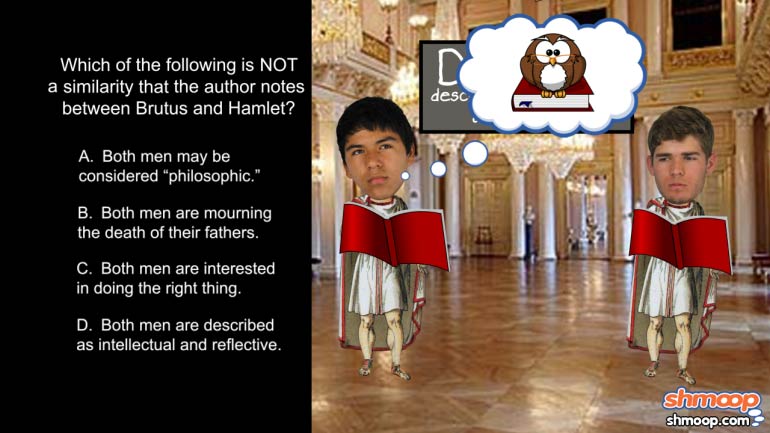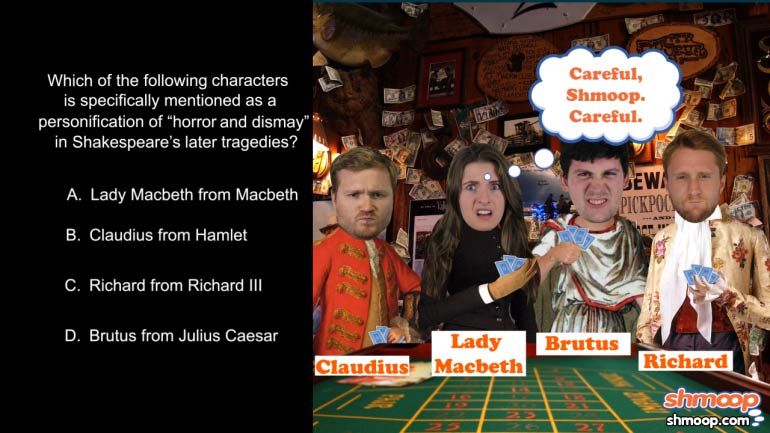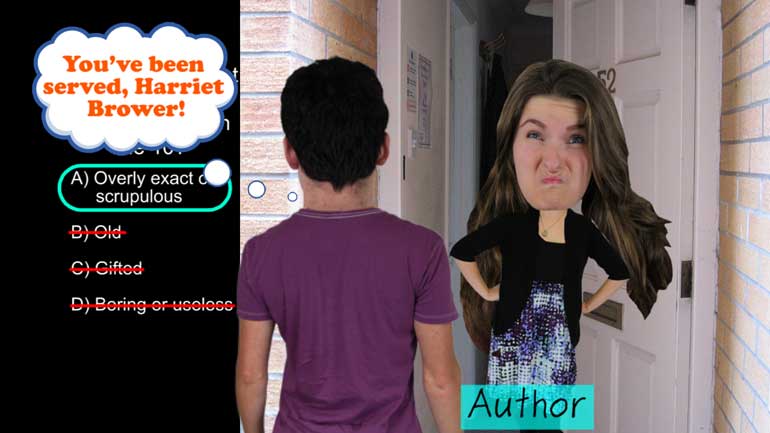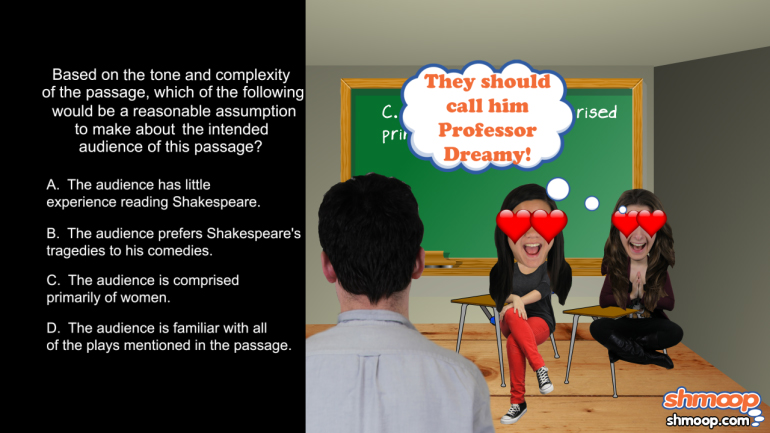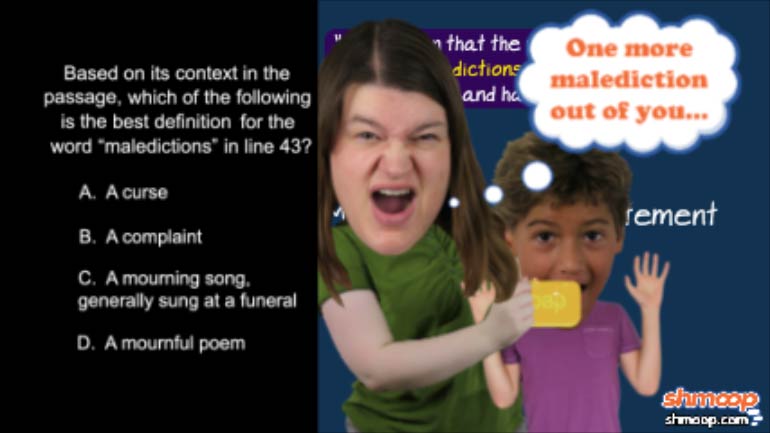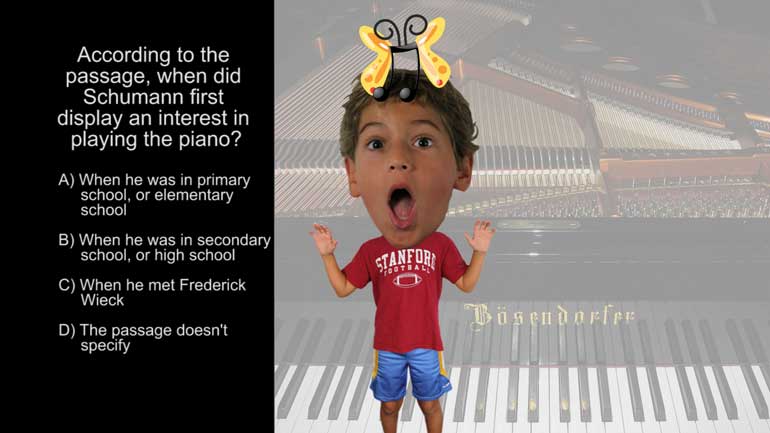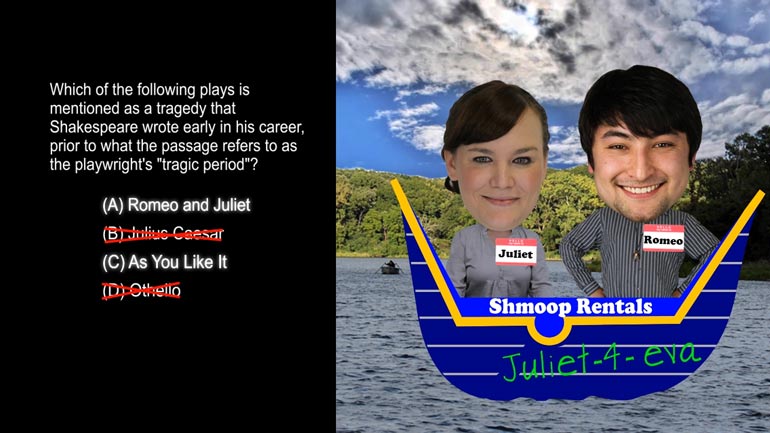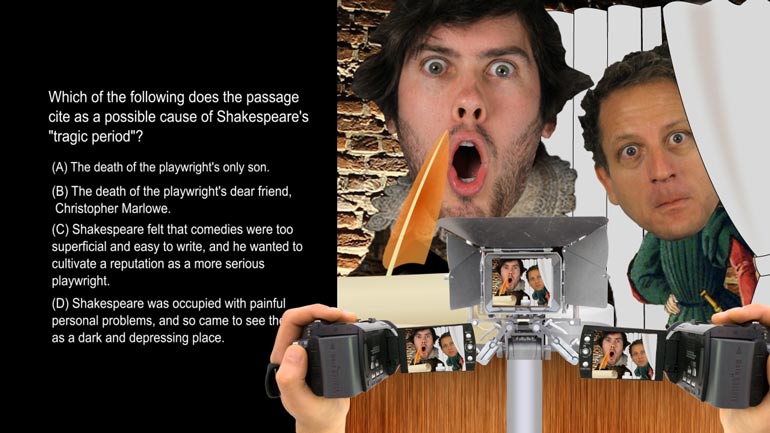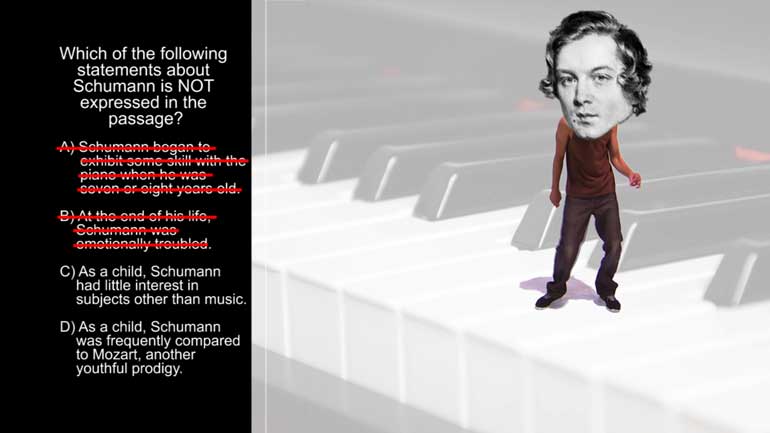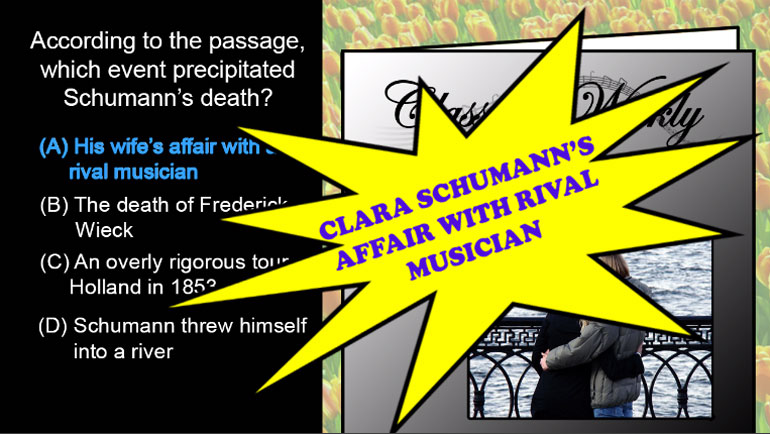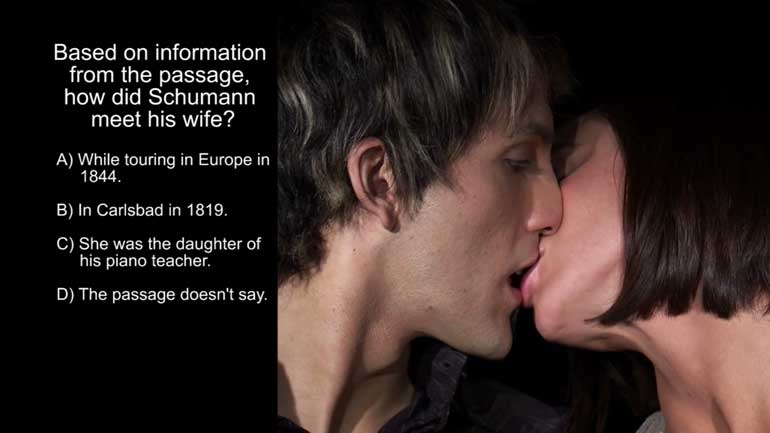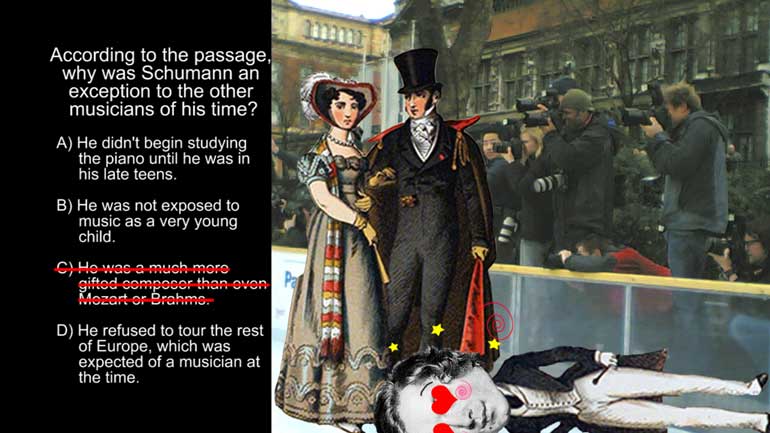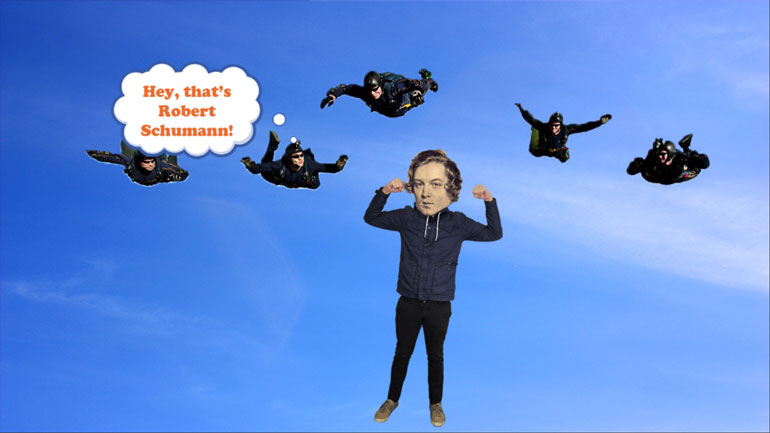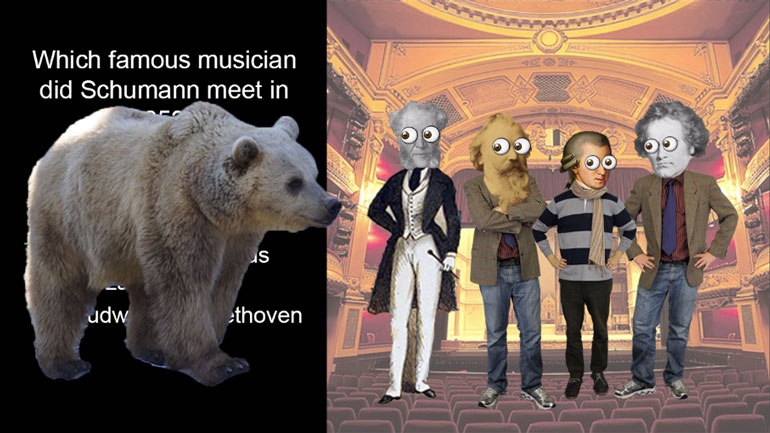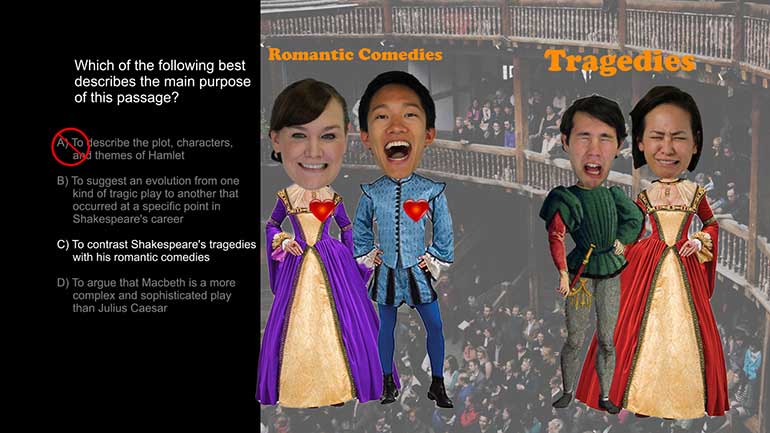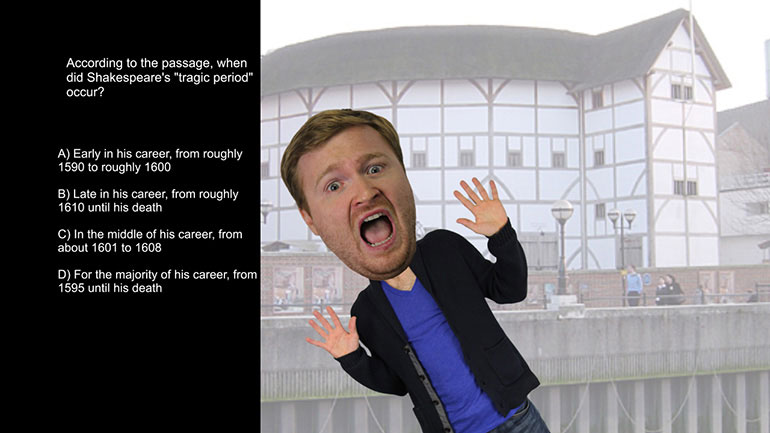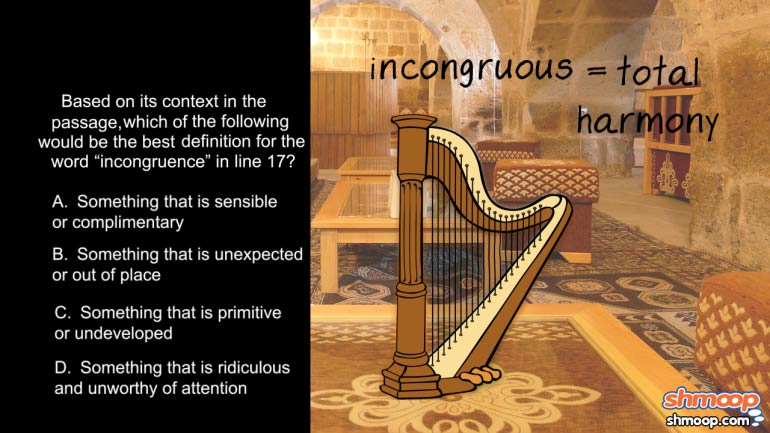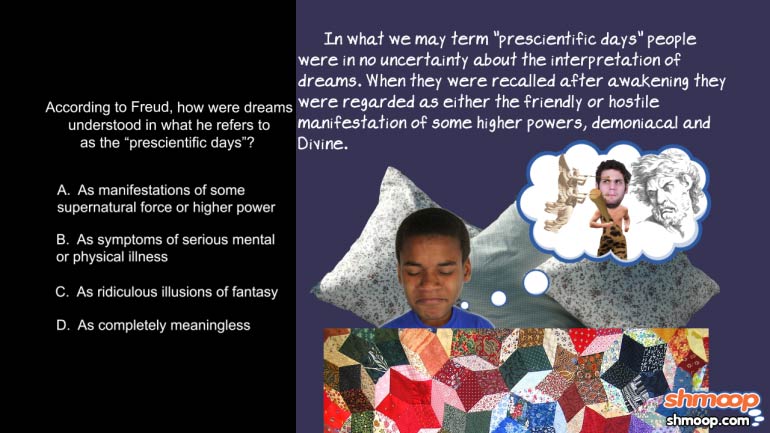ShmoopTube
Where Monty Python meets your 10th grade teacher.
Search Thousands of Shmoop Videos
Humanities Passage Videos 20 videos
ACT Reading 1.6 Humanities Passage. Which of the following is not a similarity that the author notes between Brutus and Hamlet?
ACT Reading: Humanities Passage Drill 1, Problem 7. Which of the following characters is specifically mentioned as a personification of "horror and...
ACT Reading 2.4 Humanities Passage. Which of the following is the best definition for the word "pedantic"?
ACT Reading 2.6 Humanities Passage 179 Views
Share It!
Description:
ACT Reading 2.6 Humanities Passage. Which accomplishment does the passage cite as an expression of Schumann's happiness about his marriage?
Transcript
- 00:04
Here's your Shmoop du jour, brought to you by classical composers. Once you go Beethoven,
- 00:07
you'll never go Bach.
- 00:43
Which accomplishment does the passage cite as an expression of Schumann's happiness about his marriage?
- 00:54
This question might be a little challenging, since the passage does mention all of these
- 00:58
things in one context or another.
Full Transcript
- 01:00
If we don't remember immediately, we might need to zoom through the passage again, keeping
- 01:04
an eye out for key words.
- 01:07
Choice (A) seems the easiest to eliminate, since the passage mentions "harmony" and
- 01:12
"tone" only when discussing how Schumann thought they were stupid things to learn about
- 01:16
when first taking lessons from Wieck <<veek>>.
- 01:20
The world is probably very lucky that Wieck put an end to that idea.
- 01:24
In any case, choice (A) was not a product of Schumann's marital bliss, so we can cross it off our list.
- 01:29
But how about answer (B)?
- 01:30
Sorry, no dice.
- 01:33
The tour of Europe with his wife was more about showing off her amazing piano skills
- 01:37
than anything else, so we can nix (B).
- 01:40
Choice (C) is the closest so far. The passage does mention that Schumann's "The Pilgrimage
- 01:45
of the Rose" was performed in the Hague, while he and Clara were having a sweet time in Holland.
- 01:51
However, we aren't specifically told that the piece was inspired by Schumann's marital
- 01:55
bliss, so we can eliminate answer (C). Process of elimination tells us that choice
- 02:00
(D) must be the right answer.
- 02:02
Well, process of elimination and the passage itself, which specifically says that Schumann's
- 02:07
symphony in B flat major expresses the joy he felt in his early years with Clara.
- 02:12
"Symphony in B flat major"? What a romantic title...
Related Videos
ACT Reading 1.5 Social Science Passage. Based on its context in the passage, which of the following would be the best definition for the word...
ACT Reading: Humanities Passage Drill 1, Problem 1. Which of the following best describes the main purpose of this passage?
ACT Reading: Natural Science Passage Drill 1, Problem 1. Which of the following best describes the overall purpose of this passage?
ACT Reading Prose Fiction Drill 1, Problem 1. Which of the following best describes the overall purpose of this passage?
ACT Reading: Social Science Passage Drill 1, Problem 1. According to Freud, how were dreams understood in what he refers to as the "prescienti...
